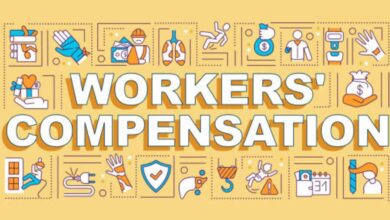
Payday loans have become a widely used form of short-term borrowing, particularly among individuals facing financial emergencies or those with limited access to traditional credit options. While these loans can provide immediate financial relief, they often come with high-interest rates and fees, leading to a cycle of debt for many borrowers.
Understanding payday loans and fair lending practices is crucial for consumers to protect their rights and make informed decisions about their finances.
What are Payday Loans?
Payday loans are short-term, high-interest loans designed to provide quick access to cash for individuals facing immediate financial needs or emergencies. These loans typically involve borrowing a small amount, ranging from a few hundred to a few thousand dollars, with the expectation of repaying it on the borrower’s next payday.
The application process for payday loans is typically straightforward, requiring minimal documentation such as proof of income, identification, and a bank account. Once approved, borrowers receive the loan amount in cash or through direct deposit. However, payday loans come with high-interest rates, often exceeding several hundred per cent on an annual basis. The repayment period is usually short, ranging from a couple of weeks to a month, and repayment is typically made in a lump sum.
While payday loans provide quick access to funds, borrowers should be aware of the significant costs and potential risks associated with these loans, including the potential for a cycle of debt due to the high-interest rates and fees involved. It is crucial for individuals considering payday loans to carefully evaluate their financial situation and explore alternative borrowing options before committing to these loans.
Consumer Rights and Legal Protections
In Australia, consumer rights and legal protections play a crucial role in ensuring fair lending practices in the context of payday loans. Here is an overview of each:
Disclosure and Transparency
Payday lenders in Australia are required to provide clear and comprehensive information about loan terms, fees, interest rates, and repayment obligations. This information should be provided clearly and understandably to enable consumers to make informed decisions.
Interest Rate Caps
The National Consumer Credit Protection Act 2009 sets maximum interest rate caps for payday loans in Australia. Currently, the cap is set at a 20% establishment fee and a 4% monthly fee on the loan amount. Additionally, there is a maximum cap on the total cost of the loan, which includes fees and interest charges.
Cooling-off Period
Borrowers in Australia have a 48-hour cooling-off period during which they can cancel the payday loan agreement without any penalty. This provision allows borrowers to reconsider their decision and make changes if needed.
Responsible Lending Obligations
Under the National Consumer Credit Protection Act, payday lenders have a responsibility to conduct reasonable inquiries into a borrower’s financial situation and assess whether the loan is suitable for the borrower. This includes considering the borrower’s income, expenses, and other financial commitments to ensure they can afford the loan.
Dispute Resolution
Borrowers have the right to lodge complaints and seek resolution through the Australian Financial Complaints Authority (AFCA). AFCA is an independent dispute resolution scheme that handles complaints related to financial products and services.
Identifying Predatory Lending Practices and Warning Signs
To avoid predatory lending practices, it’s important to be aware of warning signs and identify reputable lenders. Here are some key points to consider
Excessive Interest Rates and Fees
Be cautious of payday loans with excessively high-interest rates and fees. Ensure that the lender’s rates and fees comply with the legal caps set by the National Consumer Credit Protection Act.
Unlicensed Lenders
Verify that the payday lender is licensed and authorised to operate in Australia. Licensed lenders are required to comply with regulations and consumer protections.
Unreasonable Repayment Terms
Pay attention to repayment terms that may be unrealistic or put undue financial strain on the borrower. Responsible lenders will consider a borrower’s financial situation and offer suitable repayment plans.
Aggressive Sales Tactics
Beware of lenders that use aggressive sales tactics, such as pressuring borrowers into taking out larger loans or encouraging frequent borrowing. Reputable lenders will provide clear and objective information without exerting undue pressure.
Lack of Transparency
Avoid lenders who do not provide clear and comprehensive information about loan terms, fees, and repayment obligations. Transparency is essential for borrowers to make informed decisions.
Responsible Borrowing Alternatives
When faced with a financial emergency, it’s important to consider alternatives to payday loans that can help you avoid the high costs and potential debt trap.
Here are some responsible borrowing alternatives:
- Personal Installment Loans: Consider applying for a personal instalment loan from a bank, credit union, or online lender. These loans often have lower interest rates and longer repayment terms compared to payday loans. Make sure to compare different lenders and terms to find the most favourable option.
- Credit Card Cash Advances: If you have a credit card, you may be able to obtain a cash advance. While the interest rates for cash advances can be high, they are typically lower than payday loan rates. Be aware of any fees associated with cash advances and repay the amount as quickly as possible to minimise interest charges.
- Borrowing from Friends or Family: If possible, consider reaching out to friends or family members for temporary financial assistance. Be sure to establish clear terms and repayment plans to avoid straining your relationship.
- Employer Cash Advances: Some employers offer cash advances or emergency assistance programs to their employees. Check with your human resources department to see if this is an option available to you.
Building an Emergency Fund and Financial Safety Net
To avoid the need for payday loans in the future, it’s important to build an emergency fund and establish a financial safety net. Here’s how you can get started:
- Set a Savings Goal: Determine how much you would like to save for emergencies. Aim to keep at least three to six months’ worth of living expenses, but start with small achievable goals if necessary.
- Create a Budget: Track your income and expenses to identify areas where you can cut back and save more. Allocate a portion of your income specifically for your emergency fund.
- Automate Savings: Set up automatic transfers from your checking account to dedicated savings account each month. Treating savings as a regular expense will help you build your emergency fund consistently.
- Prioritise Saving: Make saving a priority by cutting unnecessary expenses, finding ways to reduce bills, and exploring opportunities to increase your income. Every little bit you save adds up over time.
Seeking Financial Assistance from Reputable Organisations
If you’re facing financial difficulties, there are reputable organisations that can provide assistance and guidance.
Here are a few options to consider:
- Nonprofit Credit Counseling Agencies: Nonprofit credit counselling agencies can help you develop a budget, manage your debts, and explore options for repayment plans. They may also offer debt management programs to help you regain control of your finances.
- Local Assistance Programs: Many communities have local organisations that provide financial assistance to individuals and families in need. These programs may offer help with rent, utilities, food, and other essential expenses.
- Government Assistance Programs: Research government programs that can provide temporary financial assistance, such as unemployment benefits, housing assistance, and food stamps. Visit your local Department of Social Services or similar agencies to learn about the available programs.
- Charitable Organisations: Various charities and nonprofit organisations offer emergency financial assistance to individuals facing hardship. These organisations may provide funds for rent, utilities, medical bills, or other urgent needs.
Steps to Take if Faced with Payday Loan Issues
If you find yourself facing issues with payday loans, it’s important to take proactive steps to address the situation and protect your rights as a borrower.
Here are some steps you can take:
1. Understand Borrower Rights and Responsibilities
- Review Loan Agreement: Carefully read and understand the terms and conditions of your payday loan agreement. Pay attention to interest rates, fees, repayment terms, and any penalties for late payments or defaults.
- Know State Regulations: Familiarise yourself with the payday loan regulations in your state. Understand the limits on interest rates, fees, and any other borrower protections provided by the law.
- Know Your Rights: Educate yourself about your rights as a borrower. This includes the right to receive clear and transparent information, the right to request an extended payment plan, and protection against unfair debt collection practices.
2. Seek Assistance from Consumer Protection Agencies
- State Attorney General’s Office: Contact your state’s Attorney General’s office or consumer protection agency to inquire about the regulations governing payday loans in your state and report any potential violations.
- Consumer Financial Protection Bureau (CFPB): File a complaint with the CFPB if you believe you have been subjected to unfair practices by a payday lender. The CFPB can investigate the issue and take action against lenders engaged in predatory behaviour.
3. Negotiate Repayment Plans
- Contact the Lender: If you cannot repay your payday loan on time, reach out to the lender immediately. Explain your situation and propose a repayment plan that is more manageable for you. Some lenders may be willing to work with you to find a solution.
- Request an Extended Payment Plan: In states where it’s allowed, ask the lender for an extended payment plan. This plan allows you to repay the loan in smaller instalments over an extended period without incurring additional fees. Make sure to get the agreement in writing.
4. Dealing with Debt Collectors
- Know Your Rights: Debt collectors must adhere to fair debt collection practices outlined by federal and state laws. Educate yourself about your rights under the Fair Debt Collection Practices Act (FDCPA) and other applicable laws.
- Communicate in Writing: When dealing with debt collectors, communicate in writing and keep records of all correspondence. Request that they communicate with you in writing as well.
- Validate the Debt: If you believe there are errors or discrepancies in the debt being claimed, you can request that the debt collector provide verification or validation of the debt.
- Report Violations: If a debt collector engages in harassment, threats, or other unfair practices, report the violations to the Consumer Financial Protection Bureau and your state’s Attorney General’s office.
Financial Education and Empowerment
Financial literacy plays a crucial role in helping individuals make informed decisions, avoid pitfalls such as payday loans, and develop responsible borrowing and money management skills.
Here’s why financial literacy is important and some resources and tools to promote financial education:
Avoiding Payday Loan Pitfalls
Financial literacy equips individuals with the knowledge to understand the risks associated with payday loans, including high interest rates and potential debt cycles. With financial education, people can explore alternative solutions, make better financial choices, and build emergency funds to avoid relying on payday loans.
Making Informed Decisions
Financial literacy empowers individuals to understand various financial products, services, and concepts. With this knowledge, they can compare options, evaluate costs, and choose the most suitable solutions for their needs. It helps them avoid predatory practices and make informed decisions about borrowing and managing their finances.
Building Financial Resilience
Financial literacy enables individuals to develop skills to navigate unexpected financial challenges and build resilience. It involves budgeting, saving, and planning for the future, fostering healthy financial habits and a stronger financial foundation.
Resources and Tools for Financial Education
In today’s ever-evolving financial landscape, personal finance management has become a crucial skill. To navigate this complex terrain successfully, individuals require access to a comprehensive array of resources and tools for financial education.
These invaluable assets empower individuals to make informed decisions, secure their financial well-being, and master the art of personal finance management.
- Government and Nonprofit Organisations: Many government agencies and nonprofit organizations offer free financial education resources, workshops, and online courses. Examples include the U.S. government’s MyMoney.gov, the Consumer Financial Protection Bureau’s (CFPB) financial education resources, and nonprofit organizations like the National Endowment for Financial Education (NEFE) and the Financial Literacy and Education Commission.
- Online Courses and Websites: Numerous online platforms provide financial education courses and resources, often free or at a low cost. Websites like Khan Academy, Coursera, Udemy, and Smart About Money offer courses on topics ranging from basic financial literacy to investing and retirement planning.
- Community Workshops and Events: Local community organizations, libraries, and financial institutions often host workshops and events focused on financial education. Check with your community centers or financial institutions to see if they offer any educational programs.
- Personal Finance Books and Blogs: There are many personal finance books and blogs that offer valuable insights into money management, budgeting, saving, and investing. Some popular authors in this space include Dave Ramsey, Suze Orman, and Ramit Sethi.
Promoting Responsible Borrowing and Money Management Skills
- School Programs: Advocate for the inclusion of financial literacy in school curricula at all levels. Encourage schools to incorporate personal finance topics, such as budgeting, credit management, and responsible borrowing, into their coursework.
- Workplace Programs: Employers can offer financial education programs, workshops, or access to financial counselors as part of their employee benefits package. These initiatives can help employees develop sound money management skills and make informed financial decisions.
- Community Support: Encourage local organizations, community centers, and libraries to host financial education workshops and seminars. Collaborate with local financial institutions and nonprofits to provide resources and support.
- Personal Initiatives: Take the initiative to educate yourself and your family about personal finance. Read books, attend workshops, and utilize online resources. Encourage open discussions about money matters and instill responsible financial habits within your household.
Conclusion
In conclusion, it is essential to understand the key points regarding payday loans and fair lending practices. Payday loans can provide quick cash in emergencies, but they often come with high interest rates and potential debt cycles. Recognizing the importance of consumer rights and legal protections is crucial in this context.
Borrowers have the right to transparent information, fair lending practices, and the option to request extended payment plans. Identifying predatory lending practices and being aware of warning signs can help individuals avoid falling into debt traps.
It is encouraged to seek financial education and empower oneself with the knowledge to make informed borrowing decisions. By understanding personal finances, exploring alternatives to payday loans, and building emergency funds, individuals can promote responsible borrowing and money management skills.
Financial literacy equips individuals with the tools to make informed choices, avoid pitfalls, and build a strong financial future.







